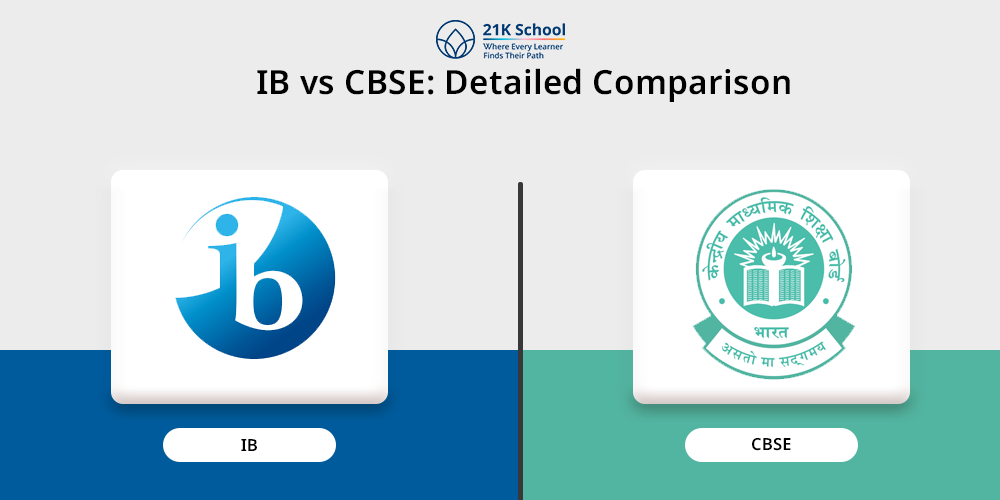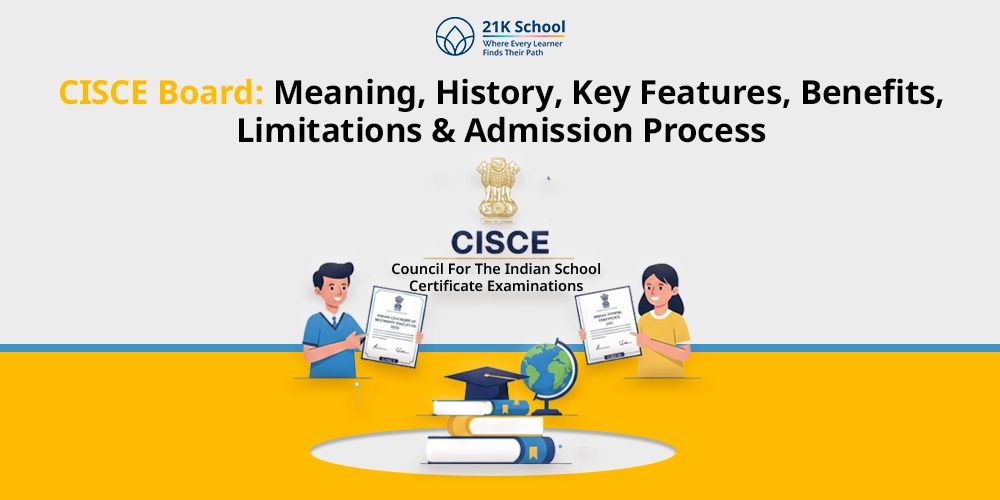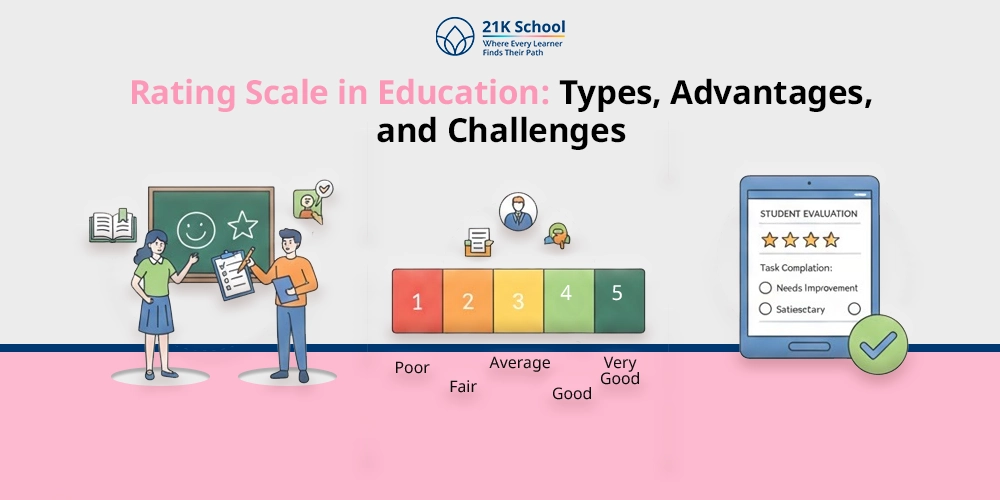
International Baccalaureate (IB) and Central Board of Secondary Education (CBSE) are educational boards offers intensive educational curriculum and standards. International Baccalaureate (IB) is an internationally recognised board that focuses on providing international education.
On the other hand CBSE board is an Indian educational board that focuses on Indian standard of education. IB is considered as more expensive as compared to CBSE board and focuses on the development of students’ creative thinking ability.
Both the boards offer different approaches to learning in terms of software curriculum, teaching methods, syllabus, and so on. Many parents think that which board will be best for their child and on which they should invest. In this article we will compare which board will be the best.
Table of Contents
What is IB Board?
The IB Board, or International Baccalaureate, is a Swiss-based international educational foundation that provides four student oriented programmes between the ages of 3 and 19: the Primary Years Programme (PYP), the Middle Years Programme (MYP), the Diploma Programme (DP) and lastly, the Career-related Programme (CP).
The IB curriculum focuses on a global view, critical thinking, inquiry-based learning and all rounded development. It is adopted globally and is mainly common with the students who intend to undertake higher education in foreign countries.
The Diploma Programme is characterised by rigour and holistic scope. IB Board is costly and strenuous in comparison with CBSE board, however offers subjects choice and flexibility.
What is CBSE Board?
CBSE Board or Central Board of Secondary Education is an Indian national education board operated by Government of India.
It holds examinations on Class 10 and Class 12 students and has a structured syllabus that focuses on students’ preparation over different competitive exams in India which include engineering and medical entrance tests.
CBSE is a curriculum following theoretical knowledge more than practical knowledge and is prevalent in India. Whereas IB Board concentrates on inquiry and global perspective, the CBSE Board is more exam-oriented and oriented towards the education system of India.
These are the strengths of each of these boards and the decision among them lies on the future and the educational objectives of the student. The cost of the CBSE board is low and simple compared to the IB board.
Difference Between IB Board and CBSE Board
A quick table focusing on the differences between IB Board and CBSE Board
| Aspect | IB Board | CBSE Board |
| Recognition | IB board is internationally recognised and accepts a wide number of institutions and universities. | CBSE board is recognised in India and accepted in every Indian universities and educational institutions. |
| Expensive | IB board is more expensive due to international standards of curriculum and program. | CBSE board is affordable as compared to IB board as it allows students to choose from diverse programs. |
| Flexibility | IB board is flexible and allows students to choose their own subjects based on their learning preference. | CBSE board is structured and follows a rigorous curriculum with fewer subject choice, making it less flexible. |
| Difficulty | IB board is difficult as compared to CBSE board because it contains internal exams and research projects. | The CBSE board is less difficult, making it easier for students to learn without any fear. |
| Cuuriculum | IB board follows a structured curriculum that focuses on practical knowledge and research rather than theoretical knowledge. | CBSE is an oriented curriculum that mostly focuses on theoretical knowledge rather than practical knowledge. |
| Syllabus | IB board has a holistic syllabus that focuses on the elements of research and project works. | The syllabus of CBSE board is more structured and focuses on the elements of theoretical course work. |
| Assesment | The assessment process of IB includes internal exams, projects, oral presentation and final exam. | The assessment process of CBSE is more based on final board exams and few internal exams. |
| Teaching Methodology | IB board focuses on student centered learning with an emphasis on inquiry based learning. | CBSE board is a teacher-centered method in which all the autonomy is given to teachers. |
| Exam Process | IB board conducts standardised exams, with written and oral exams. | The CBSE board conducts a written exam at the end of the year to assess students’ performance. |
Here, you can check a detailed differentiation of IB board and CBSE Board.
1. Recognition
IB Board
IB Board is internationally recognised and accepted by all the world universities and therefore is the best to accompany the students who want to study in other countries.
CBSE Board
CBSE board is widely recognised only in India and in some few schools outside India, but otherwise, it is national rather than global.
2. Flexibility
IB Board
IB is more flexible in its selection of subjects and is interdisciplinary, where students can design their education to their preferences.
CBSE Board
CBSE has a fixed curriculum with limited subject combinations, with a standardised curriculum of schools.
3. Cost
IB Board
IB has more flexibility in course options and promotes interdisciplinary education, which makes it 3 times more expensive as compared to CBSE board.
CBSE Board
CBSE is affordable as compared to the IB board as it only focuses on Indian standards of education.
4. Curriculum
IB Board
The curriculum is inquiry based, experimental and practical. It is developed with global citizenship, leadership and lifelong learning as its guiding values. The skills are acquired through individual subjects.
CBSE Board
CBSE is an oriented curriculum designed for national competitive exams and is largely theoretical rather than practical.
5. Syllabus
IB Board
IB syllabus provides opportunities for students to develop Theory of Knowledge, Extended Essay, Creativity, Activity & Service, some of the compulsory IB subjects.
CBSE Board
The syllabus of CBSE board aims at preparing students for examinations through theoretical knowledge and rote learning. Those different segments form the basis of the rather structured CBSE syllabus.
6. Difficulty
IB Board
The IB board is considered more difficult as it mainly tests your analytical skills, research and internal examinations.
CBSE Board
It is much easier for CBSE board than for IB board. But some portions of the course are hard and require memorisation.
7. Teaching Method
IB Board
IB implements inquiry-based learning and student-centred learning pedagogies during the teaching process which benefits the students in the development of exploration and knowledge.
CBSE Board
CBSE board is teacher-centred learning and a more conservative model where instruction is controlled by the teacher. In this teachers instructs and students listen.
8. Assessment
IB Board
IB tests comprise internal exams, projects, oral presentation and final exam, emphasising on continuous assessment and knowledge use.
CBSE Board
CBSE is more based on final board exams and few internal exams, which focuses more on rote learning and exam performance.
9. Examination
IB Board
IB exams are administered worldwide with standardised assessment standards and comprise both written and oral exams.
CBSE Board
CBSE papers are nationally held in India, predominantly in written form, with a cycle of regular exams and standard grading system.
Ending Note
Hence, one can distinguish IB from CBSE on the basis of different pointers. Based on this differentiated yet simple differentiation, parents can choose the right board for your child.
Understanding the recognition, flexibility, cost involved, syllabus difficulty level, teaching methods, assessments and examinations in IB and CBSE is easy.
Both have merits and demerits, so choose IB or CBSE based on your learner requirements. The two boards have advantages and selection should be based on educational goal and student expectation.



